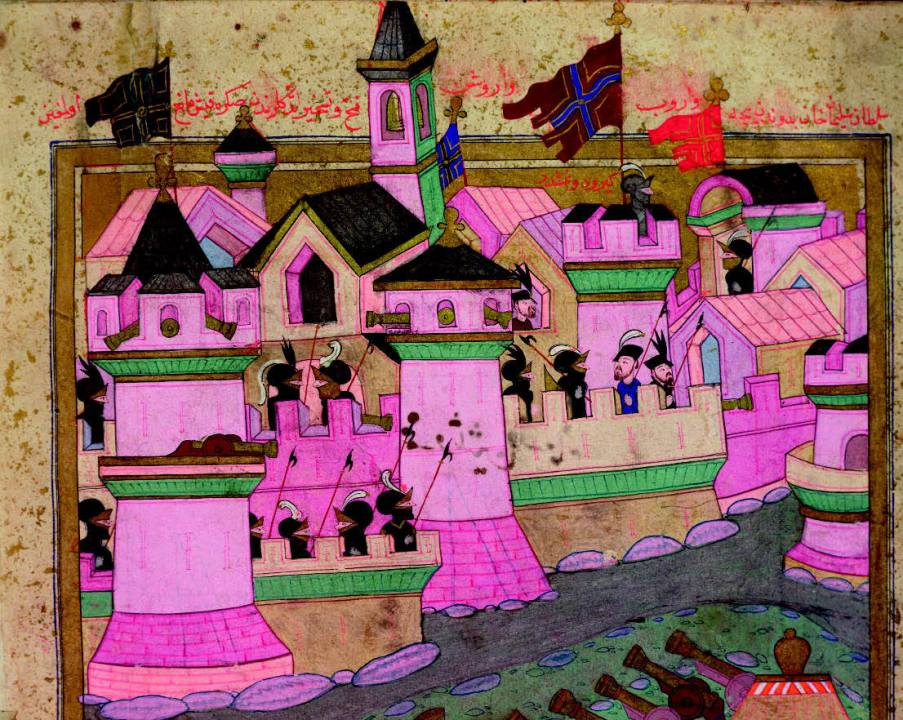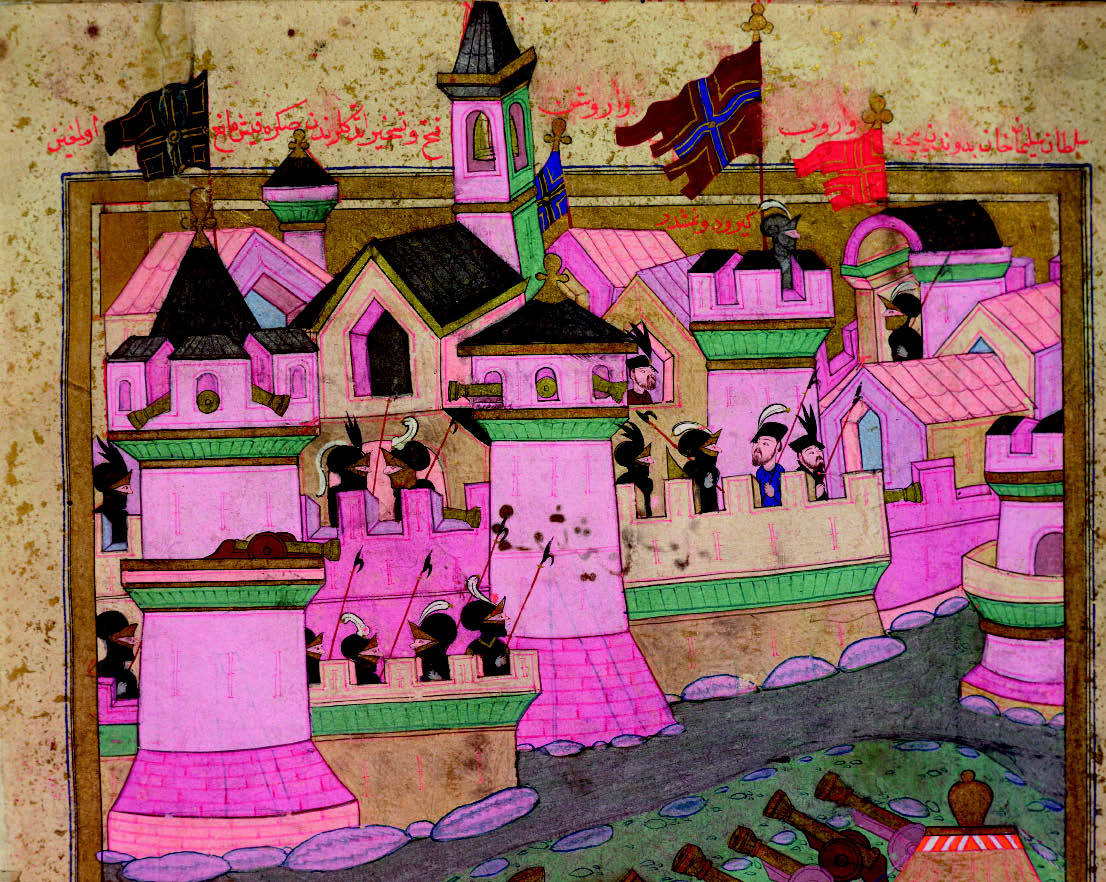Why, the energetic historian Niall Ferguson asks in his new book, did a minority of people stuck out on the extreme western end of the Eurasian landmass come to dominate the world in cultural, political and economic terms for more than half a millennium? This, he says, ‘seems to me the most interesting question a historian of the modern era can ask’. Its supplementary — to which he only tentatively suggests answers — is ‘is it all over?’
Make no mistake [he writes], this is not another self-satisfied version of ‘the triumph of the West’. I want to show that it was not just Western superiority that led to the conquest and colonisation of so much of the rest of the world; it was also the fortuitous weakness of the West’s rivals.
In other words, it’s not just that we were great; everyone else was rubbish, too.
In the pages that follow, Ferguson races through a history of civilisation, explaining the hows and arguing the whys. Or, I should say, a history of civilisations: according to one count there have been two dozen in the last ten millennia. Currently, there are five (or six, depending on whether you include Jewry as a separate civilisation): Chinese, Japanese, Indian, Islamic, Western.
Ferguson’s book gives an answer to its central question in six chapters, a shape presumably dictated by the television series that is intended to accompany it. Each chapter relates to one of the six ‘killer apps’ — vital structural and/or psychological innovations — that allowed Western civilisation to conquer the world without having actually to conquer the world. They are: Competition, Science, Property Rights, Medicine, the Consumer Society, and the Work Ethic.
The Chinese had a huge head start, but blew it because of a profound cultural conservatism and a sclerotic centralising impulse. The Caliphate and its successors had their chance too — but theocracy did for them. Those Eastern societies that are now thriving are doing so, Ferguson says, because they are applying the killer apps of the West to their own development.
Meanwhile the West is losing a sense of its own cultural heritage, he says in a rather hand-wavy conclusion (there’s some waffle about ‘our own pusillanimity’ and ‘our historical ignorance’). Are we doomed? Ferguson has some truly horrifying statistics on the many trillions of dollars the US budget is up the spout by thanks to Medicare and Medicaid (this was one of his themes in a previous book). And he mentions in passing that at the end of last year a Chinese credit rating agency ‘down- graded the US to A+ from AA, with a negative outlook’, which is the single sentence in the whole book that struck me most forcibly.
But — using an analogy from chaos mathematics that may be more than just an analogy — Ferguson says that collapse isn’t easy to predict. If I understand him rightly, he leans towards a punctuated equilibrium theory of history rather than a dialectical or cyclical one. Civilisations, like economies, are complex and volatile systems; when they go wrong, they go wrong abruptly and dramatically.
The six-part structure may be good for television, but it is a little limiting for a book. War gets shoved into the section on ‘Medicine’, for instance, and 19th-century nationalisms come under ‘Consumption’. That said, the chapters are full of interesting things. The discussion of Frederick the Great made me fall immediately in love with this titan of his age; and who knew (not me) quite how central the wearisome appetite for new clothes is to the economic and political history of the world?
There’s good personal stuff, too. I liked Ferguson’s learned footnote on the origins of Angostura Bitters (invented in 1824 by a German in Simon Bolivar’s service named Dr Johann Gottlieb Benjamin Siegert, apparently), ending with the pronouncement that ‘a pisco sour without a few drops of Siegert’s concoction is not worthy of the name’. Likewise his remark that the historic association of blue jeans with sex is ‘a curious outcome, considering how very difficult it is to have sex with someone wearing tight-fitting jeans’.
You also learn that Ferguson adores Donne, doesn’t think much of Tennyson, and — another footnote — that what he considers the ‘foundational texts of Western civilisation, that can bolster our belief in the almost boundless power of the free individual human being’, are:
The King James Bible, Isaac Newton’s Principia, John Locke’s Two Treatises of Government, Adam Smith’s Moral Sentiments and Wealth of Nations, Edmund Burke’s Reflections on the Revolution in France and Charles Darwin’s Origin of Species — to which should be added William Shakespeare’s plays and selected speeches of Abraham Lincoln and Winston Churchill. If I had to select just a single volume as my Koran, it would be Shakespeare’s complete works.
Fair enough.
The slightly naff notion of ‘killer apps’ is fairly representative of the popular style Ferguson is aiming for: part Harvard professor, part drivetime DJ. He can’t resist a weak pun: tweaking Weber’s ‘Protestant work ethic’ into a ‘Protestant word ethic’, joking ‘for “the clash of civilisations”, read “the crash of civilisations” ’, or talking of ‘Westerners’ and ‘Resterners’.
The effect of this offhandedness is often invigorating and amusing — as when, after an eyebrow-raising discussion of the high days of Chinese and Portuguese enterprise in the late medieval period, he wonders:
What of the English, whose territorial ambitions had once extended no further than France, and whose one novel economic idea in the Middle Ages had been selling wool to the Flemish?
But then again, sometimes it simply comes across as smart-alecky. Ferguson argues at the outset for an engaged history, rather than ‘scissors-and-paste’, and he certainly delivers. A positively Blimpish excursus on how
private property rights are repeatedly violated by governments that seem to have an insatiable appetite for taxing our incomes and our wealth and wasting a large portion of the proceeds,
and ‘empire has become a dirty word’, sounds like a Daily Mail page eight, for instance.
There are sideswipes at ‘Irish rock stars’ and spoilt bourgeois soixante- huitards (‘what they were really after was free love’), and — at a fabulously irrelevant tangent — he sneers that ‘the scientifically uneducated embraced scientific racism as enthusiastically as people today accept the theory of man-made global warming’.
Karl Marx is denounced as ‘an odious individual’ — not only was he scruffy and lecherous, Ferguson tells us, but he had jolly bad handwriting and was hopeless at playing the stock market. Rousseau’s The Social Contract is ‘among the most dangerous books Western civilisation ever produced’. Bolshevism—Ferguson calls it a ‘contagion’ though, perhaps carefully, not a ‘bacillus’ — is compared to the Spanish ’flu. And of Islamism he says: ‘In reality, the core values of Western civilisation are directly threatened by the brand of Islam espoused by terrorists.’ I don’t think he means ‘threatened’; I think he means ‘opposed’.
So Ferguson is strongest when he’s at his grittiest: adducing unexpected data, making interesting connections, and — his special area of expertise — following the money. He’s least good when he’s phoning in generalisations, telling us that ‘war is hell’ or ‘all flesh is grass’, as if we need Harvard’s Laurence A. Tisch Professor of History to tell us either of those things.
Ferguson is no fool, God knows, and he tells a story ably and with splendid clarity. But in this book-of-the-TV-series you get the sense of a brand being stretched just a bit thin. This is a minor work. And it is jolly slight indeed for the £25 that is being asked. Has the man never heard of market forces?








Comments